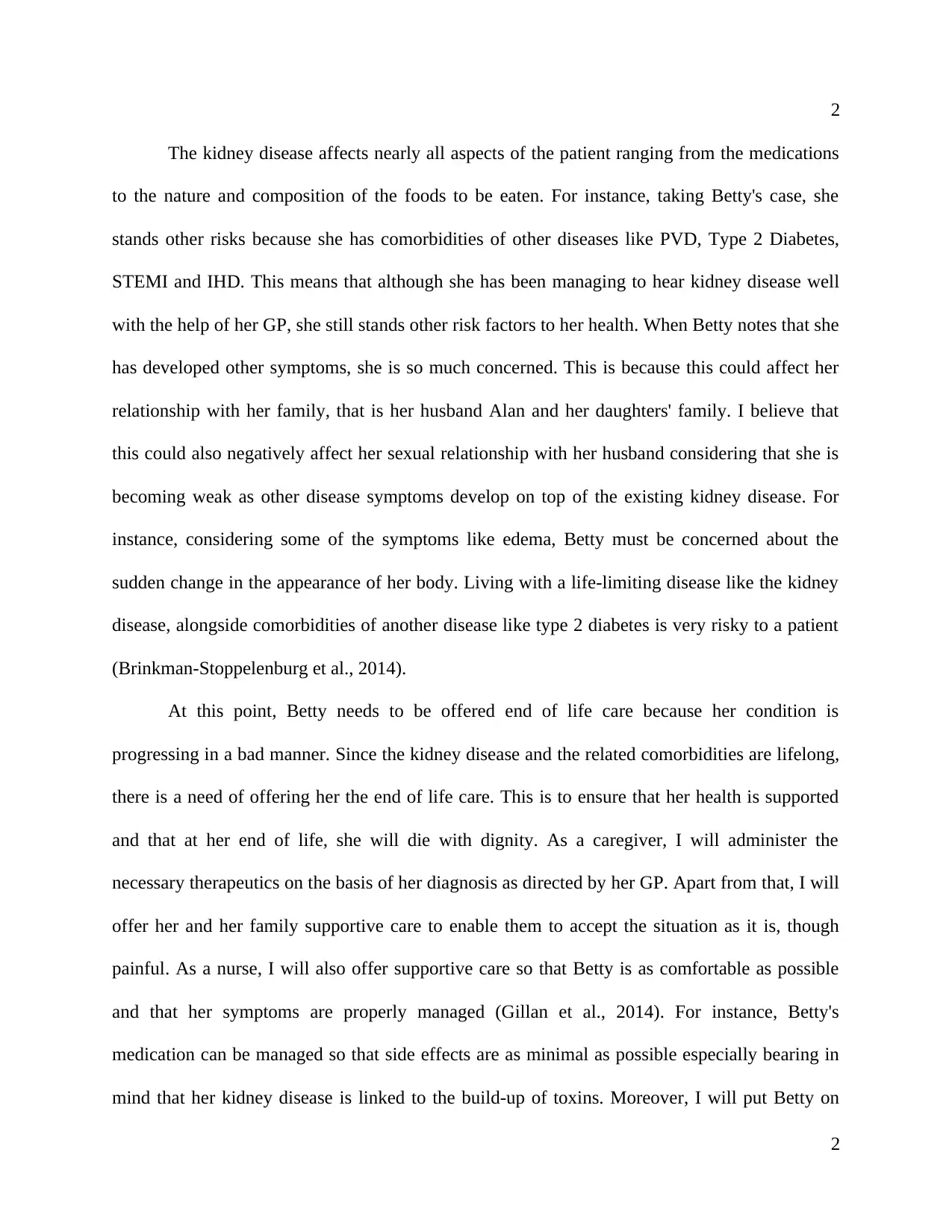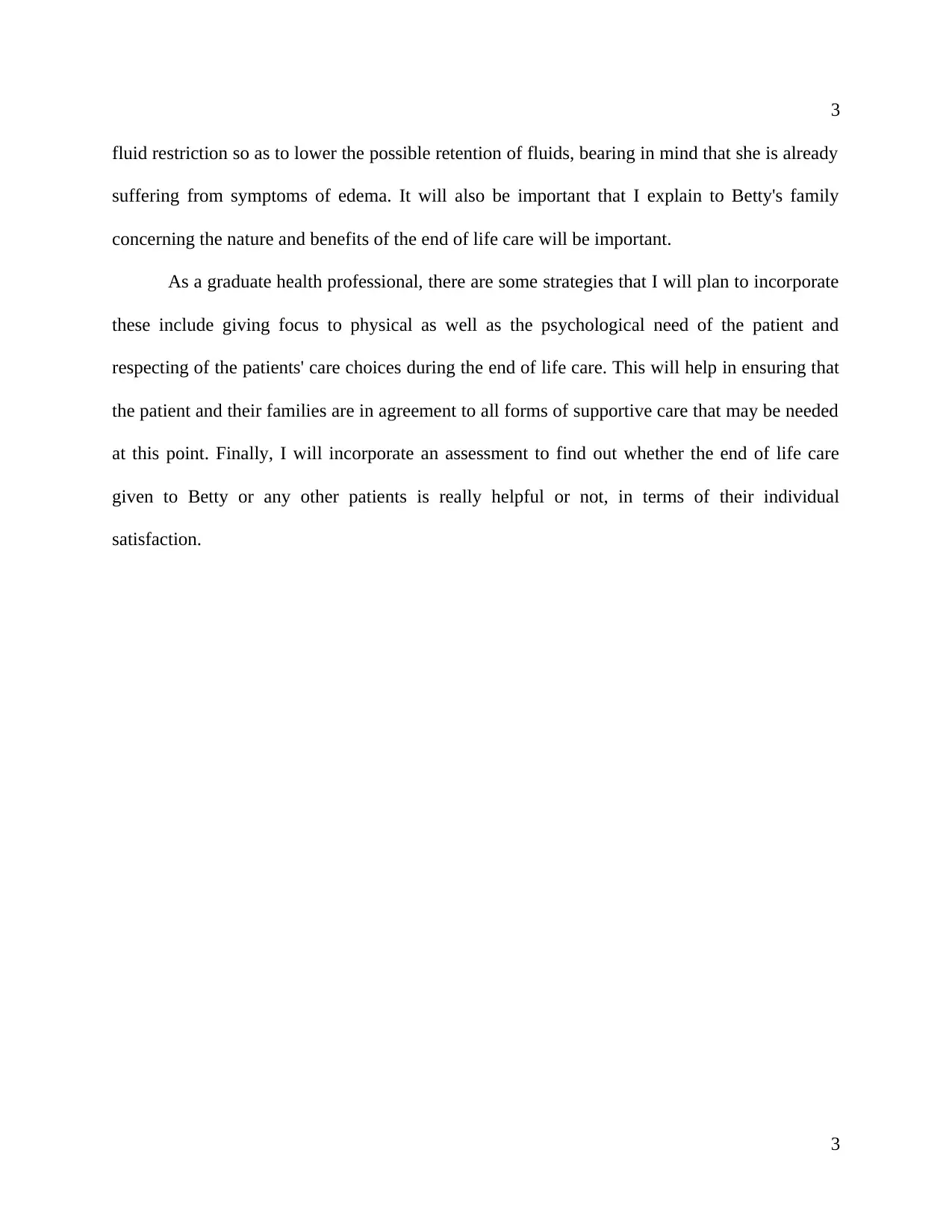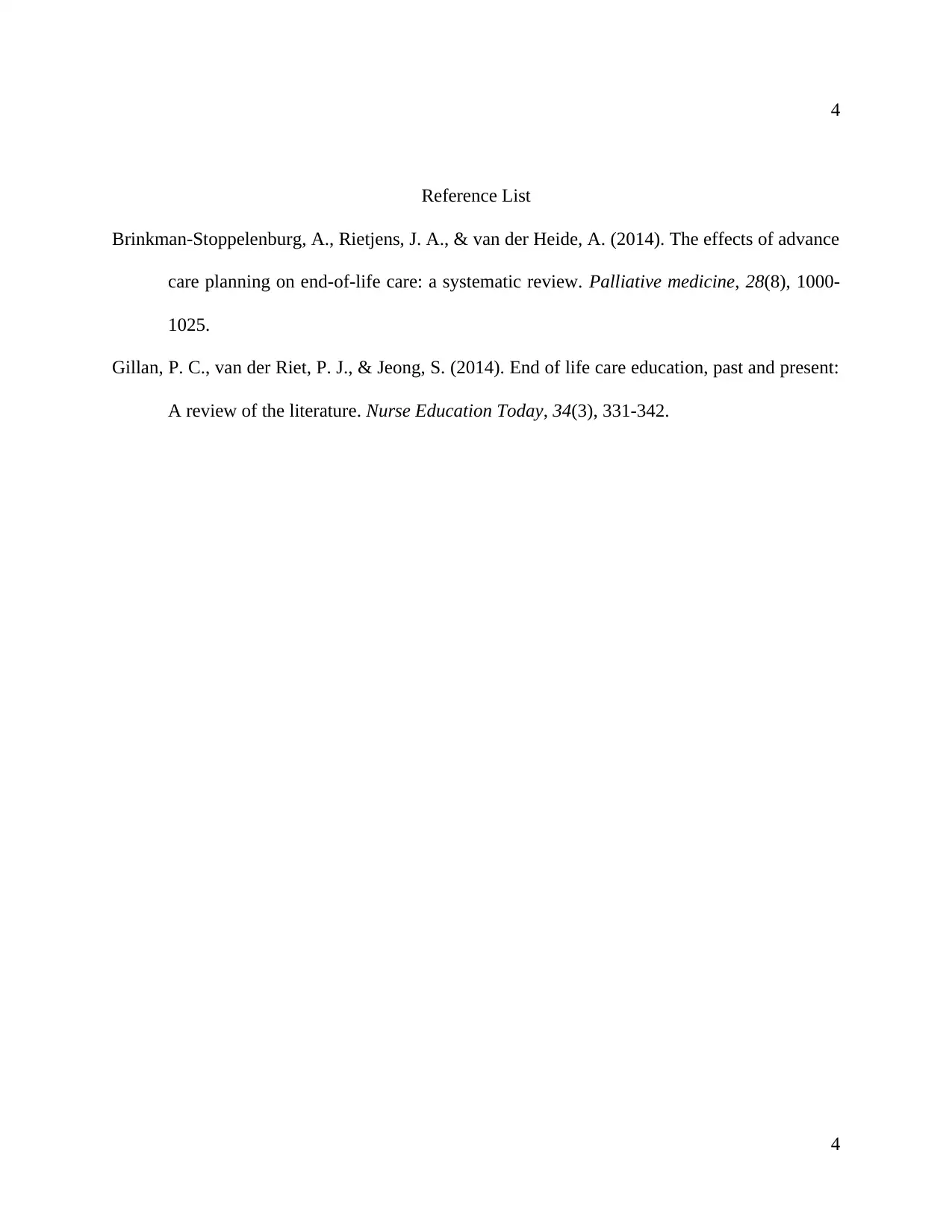Case Study Analysis: End-of-Life Care for Patients with Kidney Disease
VerifiedAdded on 2020/04/07
|4
|680
|70
Case Study
AI Summary
This assignment presents a case study focusing on a patient, Betty, suffering from kidney disease and multiple comorbidities, including PVD, Type 2 Diabetes, STEMI, and IHD. The case study explores the challenges of managing the patient's condition, particularly concerning the need for end-of-life care. The document emphasizes the importance of supportive care, symptom management, and fluid restriction. It also highlights the role of the caregiver in administering treatments, providing emotional support to the patient and family, and respecting the patient's care choices. Furthermore, the assignment discusses the integration of physical and psychological needs, as well as the importance of assessing the effectiveness of the end-of-life care provided. The reference list includes relevant literature on end-of-life care and its impact on patients.
1 out of 4











![[object Object]](/_next/static/media/star-bottom.7253800d.svg)